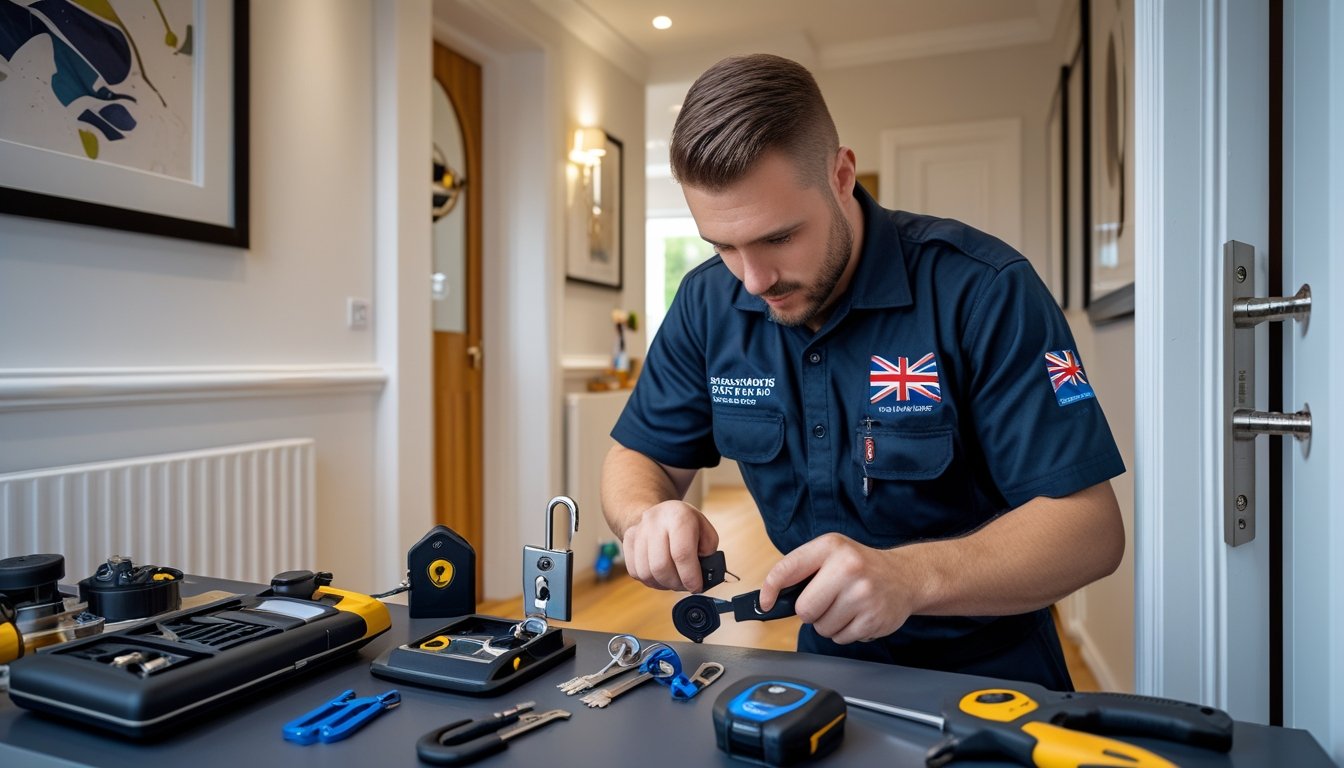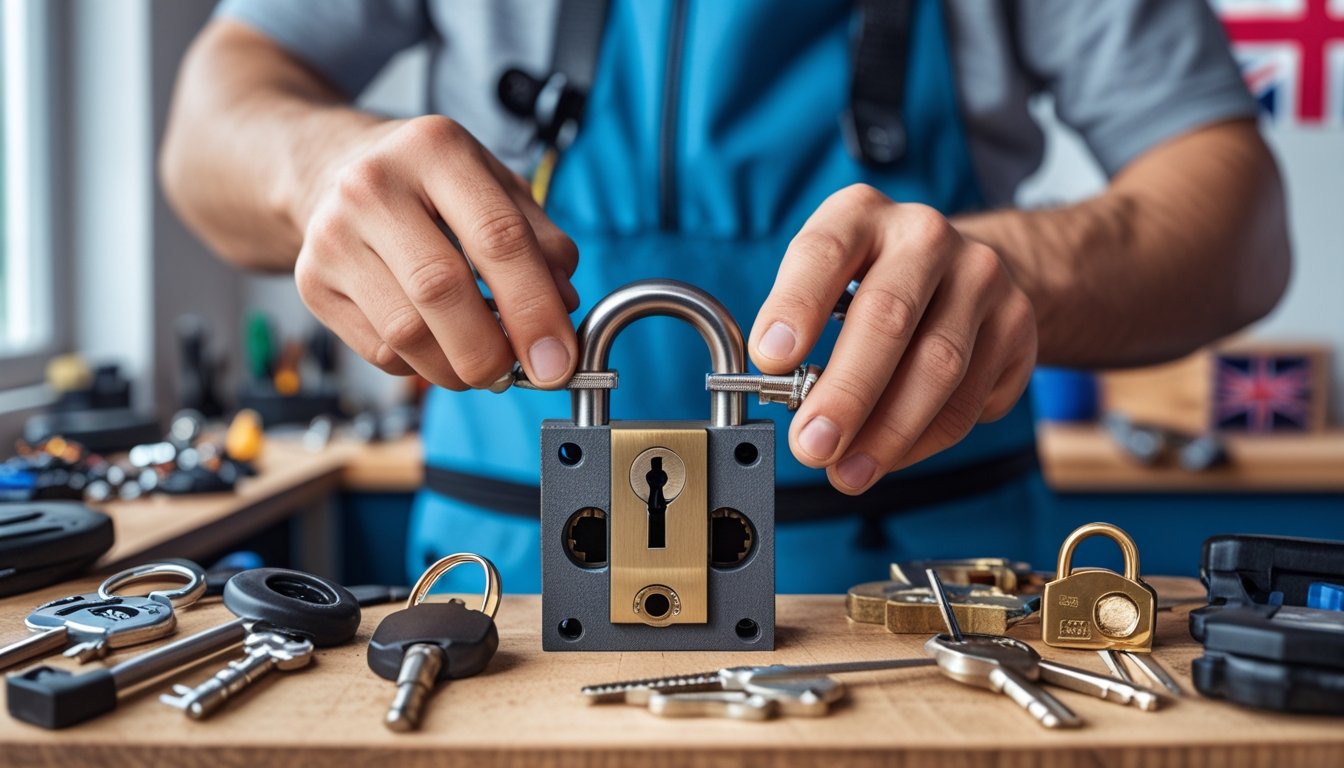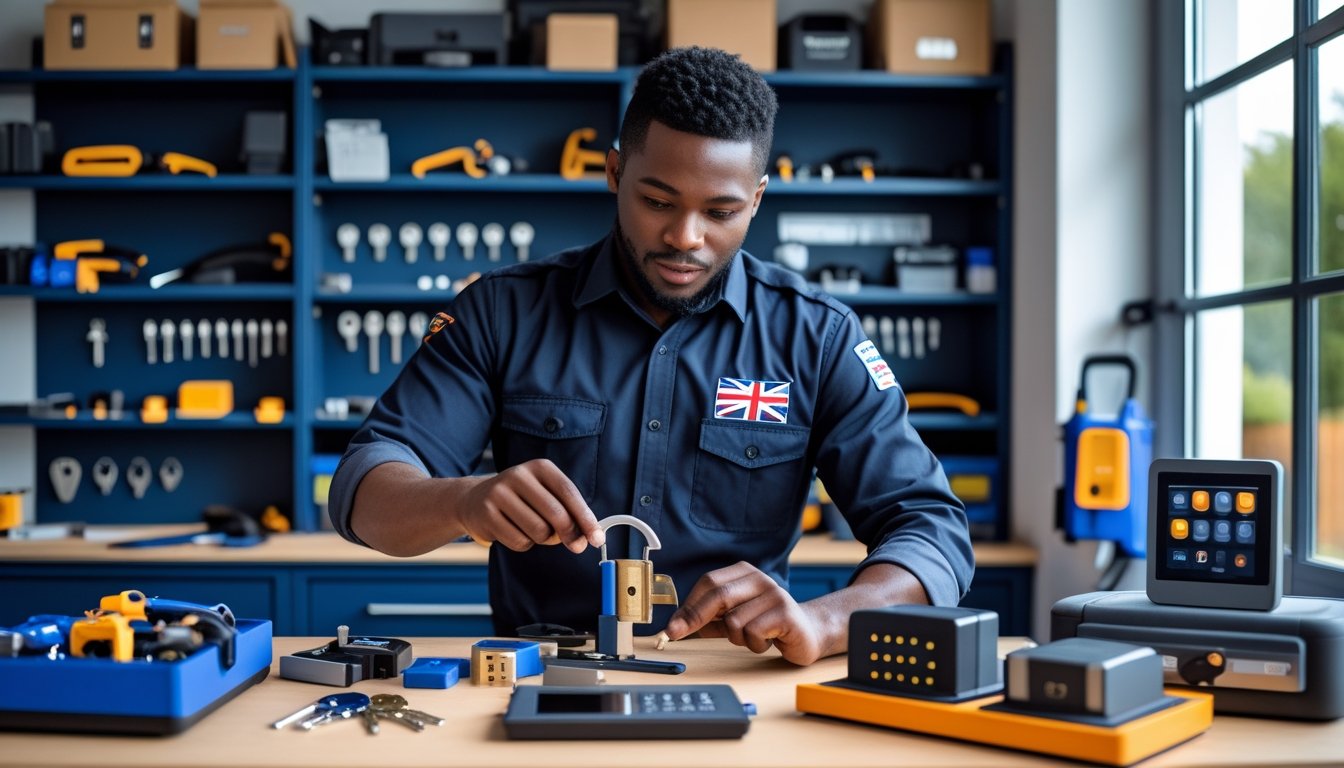Late updated: 24 Aug 2025 11:08
Written by: Elena Prescott
Understanding UK Locksmith Services Limitations: Key Considerations
The locksmith industry in the UK is both intricate and essential, playing a critical role in our daily security. While many assume that locksmiths are always equipped to handle any lock-related issue, it's important to recognise the specific limitations they face. Although UK locksmiths do not require a licence to operate, they must navigate various regulations to ensure their services meet legal and professional standards.

Our understanding of locksmith services often overlooks the behind-the-scenes challenges these professionals face. From navigating complex security systems to adhering to evolving legal requirements, locksmiths must constantly update their skills and knowledge. Despite these constraints, they continue to provide indispensable services, ensuring our homes and businesses remain secure.
Exploring the nuances of this profession not only clarifies what locksmiths can and cannot do but also highlights the importance of remaining informed consumers. In this post, we aim to shed light on these limitations, empowering us with the knowledge needed to make well-informed decisions in securing our properties.
Key Takeaways
- UK locksmiths do not need a specific licence, but they must comply with industry standards.
- Awareness of locksmiths' limitations helps consumers make informed security choices.
- Ongoing education and compliance are crucial for locksmiths to overcome challenges.
Core Limitations of UK Locksmith Services

In the UK, locksmith services play a vital role in ensuring security but are not without their challenges. We explore some core limitations related to regulation, licensing, service quality, and unverified professionals.
Absence of Government Regulation
The UK locksmith industry lacks a centralised government regulation system. This absence means no uniform standards are enforced across the industry. As a result, locksmiths operate independently without overarching oversight.
Without mandatory guidelines, service quality can vary significantly. Customers may struggle to choose between different providers without clear regulatory assurance. Transparency in operations is challenging, with potential gaps in safety and accountability. Consumers must conduct thorough research before hiring a locksmith.
Lack of Legal Licensing Requirements
The locksmith trade in the UK does not require practitioners to hold a formal licence. This lack of licensing means anyone can claim to be a locksmith with minimal verification of skills or credentials.
While experienced locksmiths ensure professional service, the absence of legal licensing can lead to variability in expertise. Customers may encounter services that do not meet their expectations. Trust becomes crucial, and word-of-mouth recommendations often guide decisions. The absence of licensing elevates the importance of reviews and referrals for assessing capability.
Varying Service Quality and Pricing
A noteworthy limitation is the discrepancy in service quality and pricing among locksmiths. With no standard pricing model or quality benchmarks, customers may experience significant differences across service providers.
Price variability can lead to confusion. Consumers may pay more or less for similar services based on factors unrelated to the actual task complexity. Selecting a locksmith thus often involves meticulous comparisons. Professional locksmiths should provide clear, upfront quotes, but this is not always guaranteed. Specific guarantees or warranties on work quality might also be variable, requiring diligence from clients.
Risks of Unverified or Rogue Operators
The presence of unverified or, worse, rogue operators poses serious risks in the locksmith landscape. Without mandatory checks, unscrupulous individuals can enter the trade, offering subpar or unethical services.
These operators can compromise security, resulting in increased vulnerability for customers. The potential for fraud or ineffective solutions means that clients must be cautious. We recommend choosing locksmiths affiliated with recognised organisations or trade bodies.
Clients are advised to always verify certifications, credentials, and reviews to avoid potential pitfalls. Acting with prudence ensures that security solutions are trustworthy and effective.
Measures to Overcome Industry Limitations

Overcoming limitations in the locksmith industry involves enhancing professional standards, ensuring safety and trust through checks, and adapting to evolving lock technologies. By leveraging industry associations, background checks, accreditation, and advanced skills in digital locks, we can maintain high service levels.
Role of Professional Associations
Professional associations like the Master Locksmiths Association (MLA) play a pivotal role in raising industry standards. They offer membership to locksmiths who meet stringent criteria, which often includes rigorous training and continuous professional development.
Membership in such associations assures clients of a locksmith's competency and adherence to a code of ethics. Associations also provide valuable resources and networking opportunities, helping members stay updated with industry trends and innovations. By fostering a united community, these organisations encourage best practices and bolster public confidence in our services.
Importance of DBS and CRB Checks
Conducting comprehensive Disclosure and Barring Service (DBS) and Criminal Records Bureau (CRB) checks is vital for maintaining trust in our profession. These checks verify the backgrounds of locksmiths, ensuring they have no criminal history that could compromise customer safety.
Regularly updated checks are essential, considering the sensitive nature of locksmithing—which often involves access to private properties. This transparency safeguards both customers and locksmiths, promoting a trustworthy professional environment. By incorporating these checks into our standard hiring and retention processes, we reinforce our commitment to safety and security.
Value of Industry Accreditation and Training
Accreditation and ongoing training are essential to overcome industry limitations. Accrediting bodies evaluate locksmiths' skills, providing validation of their expertise. Engaging in regular training sessions ensures that locksmiths are up-to-date with the latest techniques and tools.
Training covers various aspects like lock installation, security system updates, and emergency services. It equips us with the necessary skills to handle complex situations with efficiency. Such programmes also foster a culture of competence and dedication, thereby building trust with clients seeking professional locksmith services.
Assurances for Digital and Advanced Lock Installations
As digital lock technology becomes more prevalent, our ability to install and maintain these systems is crucial. These advanced locks offer enhanced security but require specialized knowledge for their proper installation and upkeep.
By staying informed through workshops and certification courses focused on digital locks, we ensure robust security solutions for our clients. Understanding the intricacies of these systems allows us to provide effective support, whether for installation or troubleshooting. By advancing our skills in this area, we continue to meet and exceed client expectations in a rapidly evolving market.
Frequently Asked Questions

In the UK locksmith industry, understanding specific service limitations and qualifications can be vital. We'll address common questions about working hours, legal regulations, and qualifications that distinguish competent locksmiths.
What are the typical working hours for locksmiths in the UK?
Locksmiths in the UK typically operate within standard business hours. However, many provide 24/7 emergency services for lockouts or urgent security needs. This availability helps address unexpected emergencies promptly, ensuring that clients are not left locked out or insecure.
Are there any specific types of locks that UK locksmiths are not permitted to work on?
While locksmiths can work on most residential and commercial locks, some advanced or highly specialised security systems might require additional certifications or permissions. It's important to verify that the locksmith possesses the necessary expertise for specific high-security installations.
What qualifications should a reputable locksmith in the UK possess?
Reputable locksmiths often hold certifications from recognised training organisations, demonstrating competence in various lock mechanisms and security systems. They should also have a valid DBS check, ensuring trust in their professional conduct. Continuous education is beneficial due to evolving technology in security products.
Is there a regulatory body for locksmith services in the UK, and what are their standards?
The UK locksmith industry does not have a government-mandated regulatory body. However, voluntary organisations like the Master Locksmiths Association (MLA) set standards for quality and professionalism. Membership often indicates adherence to rigorous skill and ethical guidelines.
Can locksmiths in the UK provide services for vehicle locks, or is this outside their remit?
Many locksmiths in the UK offer automotive services, such as unlocking vehicles, replacing keys, and fixing ignition issues. They often have the training specific to vehicles, though not every locksmith provides this due to the specialised nature of modern car locking mechanisms.
What measures are in place to ensure customer privacy and security when using locksmith services in the UK?
To safeguard customer privacy and security, locksmiths typically follow strict confidentiality practices. This includes not sharing sensitive information and employing secure methods for managing locks and keys. Many reputable locksmiths are also insured, offering an additional layer of security assurance for their clients.
